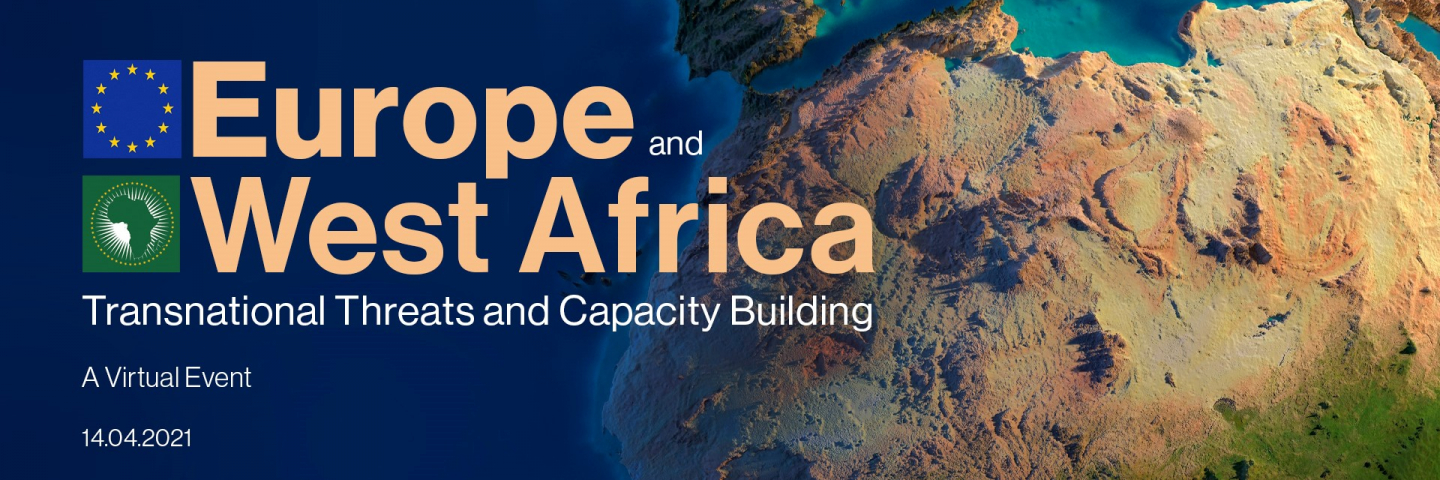
European Security Seminar–South Hosts Virtual Conference on Europe’s Capacity Building Support to West African States
By College of International and Security Studies
George C. Marshall European Center for Security Studies
GARMISCH-PARTENKIRCHEN, Germany (April 15, 2021) — On April 14, the George C. Marshall European Center for Security Studies hosted a virtual course on the topic, “Europe and West Africa: Transnational Threats and Capacity Building.” The purpose was to better understand current threats and responses by addressing key political, economic, and social drivers of instability and insecurity. The event brought together a diverse group of security and defense professionals from Europe, Africa, and the U.S., to address transnational threats to peace and security in West Africa and Europe, as well as discuss strategies, approaches, and institutional responses.
Retired German Air Force Brig. Gen. Helmut Dotzler, Marshall Center German Deputy Director, provided welcome remarks. Panelists with wide-ranging expertise, including African scholars, African union representatives, and European foreign policymakers, shared their insights throughout four panel themes.
The first panel examined the activities of terrorist groups and violent extremist organizations. The discussion considered the current situation on the ground and how terrorism and VEO are able to exploit and intensify existing conflicts among local communities. The main reason to join such movements is to seek protection for one’s own community and to ensure economic activity.
Panel two examined illicit trade and irregular migration within West Africa and between West Africa and Europe. The conversation considered the underlying structures leading to the unlawful movement of people and goods, as well as the major routes, different categories, and financing of trafficking.
Panel three widened the scope to study the impact of the French military intervention, Operation Barkhane, in Mali and how it relates to the security interventions of the European Union. The lack of homogeneity in the forces of some African partner states challenges implementing European training missions, and it can be difficult to regain control over vast territories before addressing issues of state governance. Also closely considered were the roles of the African Union, Economic Community of West African States, and G5 Sahel.
The fourth and final panel discussed the nexus between security, governance, and development issues, highlighting the importance of a comprehensive approach. External actors can contribute to stabilization efforts if they are able to provide physical and political access to a conflict area and establish structures of civil and military cooperation.
The exchange between experts and participants achieved a better understanding of the root causes of transnational threats in West Africa and the Sahel and their implications for Europe.